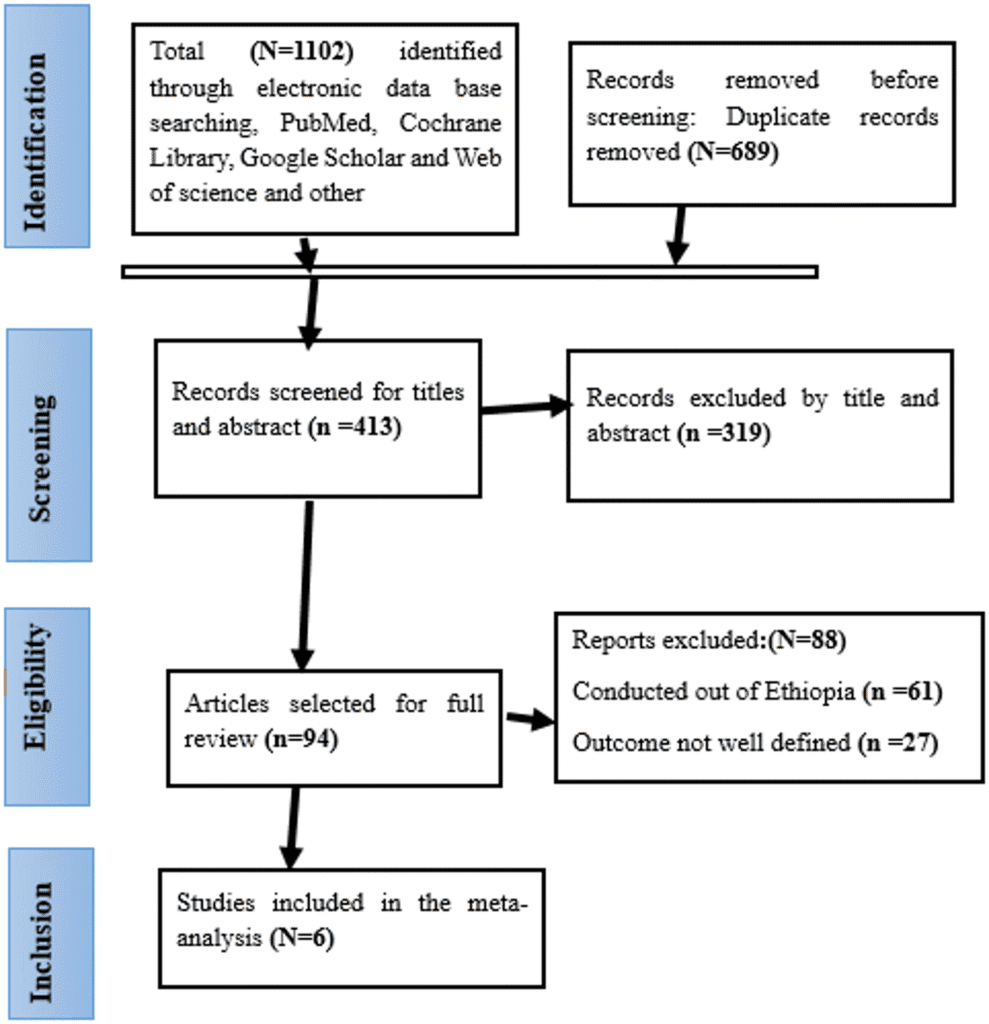Prevalence and Determinants of Meconium-Stained Amniotic Fluid in Ethiopian Mothers
Understanding Meconium-Stained Amniotic Fluid
Meconium-stained amniotic fluid (MSAF) occurs when the fetus passes meconium into the amniotic fluid before or during labor, which can pose various health risks to the newborn. This article synthesizes findings from a comprehensive systematic review and meta-analysis aimed at assessing the prevalence of MSAF among mothers who gave birth in Ethiopia and identifying key determinants contributing to this condition.
Study Design and Setting
A systematic review and meta-analysis were executed to calculate the pooled prevalence of MSAF in Ethiopian mothers. The study followed the Preferred Reporting Items for Systematic Reviews and Meta-Analysis (PRISMA) guidelines, ensuring a rigorous approach. It is essential to note that the study was not pre-registered in PROSPERO, which is a limitation.
Research Methodology and Data Sources
A meticulous search was performed using prominent databases such as PubMed, Embase, Science Direct, Cochrane Library, Google Scholar, and Web of Science. Terms like “prevalence and factors associated with MSAF among mothers who gave birth in Ethiopia” were used, along with relevant keywords to maximize the retrieval of pertinent studies.
The literature search was conducted between June 30 and July 15, 2024.
Population and Eligibility Criteria
The review focused on mothers who gave birth in Ethiopia, assessing the determinants of MSAF and comparing findings across various published studies. The eligibility for inclusion followed the PICO framework, assessing the condition, context, and population.
Inclusion Criteria
- Geographical Focus: Studies conducted in Ethiopia.
- Study Type: Observational cross-sectional and case-control studies reporting on MSAF.
- Language: Only articles published in English were included for clarity.
Exclusion Criteria
Certain records were excluded based on their focus or quality. This included articles that lacked relevant outcome measures, were qualitative studies, or were mere commentaries.
Data Quality Assessment
A rigorous appraisal of the study quality was performed using the Joanna Briggs Institute (JBI) checklist. Only studies scoring 50% or higher on the quality criteria were included, ensuring that the final analysis was based on credible and robust evidence.
Data Extraction and Outcome Measurement
Data extraction involved collaboration among six reviewers, who utilized an Excel spreadsheet specifically designed for this purpose. Vital metrics, including study author, year of publication, and prevalence of MSAF, were captured.
The main outcome was the prevalence of MSAF among Ethiopian mothers, supplemented by an analysis of factors influencing this condition through adjusted odds ratios (OR) and 95% confidence intervals (CIs).
Statistical Analysis and Heterogeneity
Data were analyzed using STATA™ 14, utilizing meta-analysis software to calculate pooled prevalence rates. The I² statistic was employed to measure heterogeneity among studies, revealing significant variability (I² = 93%).
Subgroup analyses were conducted to pinpoint potential causes of heterogeneity based on geographic regions and the quality of the studies.
Publication Bias
To assess publication bias, an inverted funnel plot was employed, revealing a symmetrical distribution, which suggests limited bias in the included studies.
Conclusion
This systematic review and meta-analysis offer vital insights into the prevalence and determinants of meconium-stained amniotic fluid among mothers in Ethiopia. The findings highlight the need for further research and targeted interventions to improve maternal and neonatal health outcomes.
For those interested in detailed methodologies, researching articles on MSAF can provide a thorough understanding of its implications. By understanding the underlying factors contributing to MSAF, healthcare professionals can better support expectant mothers and mitigate associated risks.
External Links for Further Reading
This article delivers essential information aligning with SEO best practices, ensuring optimal engagement while enlightening readers on critical maternal health issues in Ethiopia.
